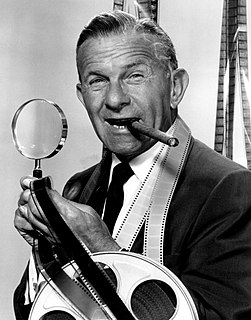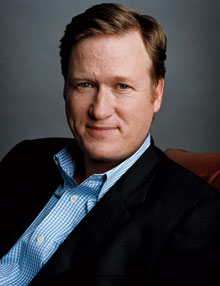A Quote by Fletcher Knebel
Hollywood, to hear some writers tell it, is the place where they take an author's steak tartare and make cheeseburger out of it. Upon seeing the film, they say, the author promptly cuts his throat, bleeding to death in a pool of money.
Related Quotes
Times have changed since a certain author was executed for murdering his publisher. They say that when the author was on the scaffold he said good-bye to the minister and to the reporters, and then he saw some publishers sitting in the front row below, and to them he did not say good-bye. He said instead, "I'll see you again."
Money is the root of all evil.' Then we hear, 'A fool and his money are soon parted.' What are they talking about? If money is so evil, shouldn't it be, 'A wise man and his money are soon parted'? And another thing, how does a fool get money in the first place? I know some fools who have a lot of money, but they won't tell me how they got it, and I won't tell them.
There is no obligation for the author of a film to believe in, or to sympathise with, the moral behaviour of his characters. Nor is he necessarily to be accredited with the same opinions as his characters. Nor is it necessary or obligatory for him to believe in the tenet of his construction - all of which is a disclaimer to the notion that the author of Drowning by Numbers believes that all men are weak, enfeebled, loutish, boorish and generally inadequate and incompetent as partners for women. But it's a thought.
The art path leads you to be increasingly free. And what does "because of being increasingly free" mean? Julio Ramón Ribeyro used to say a mature novel demands the author's death, not literal death but metaphoric death, which is the author has to truly erase himself. Therefore, to be truly free, you have to break free from internal and external pressures, to erase the self completely and become a sort of medium, let the story pass through yourself and let the story dance with you.



































